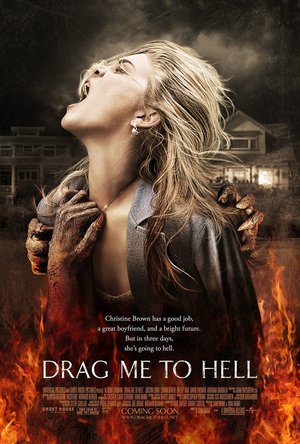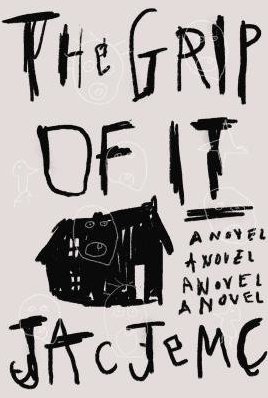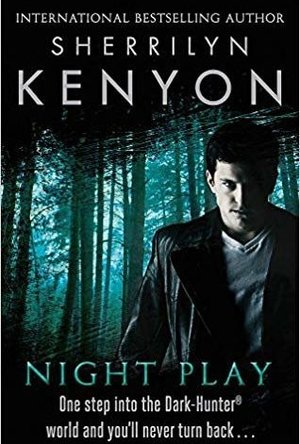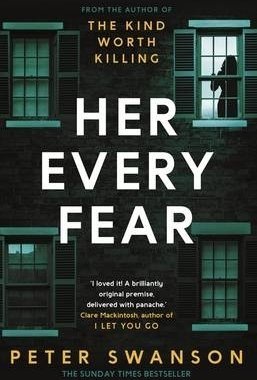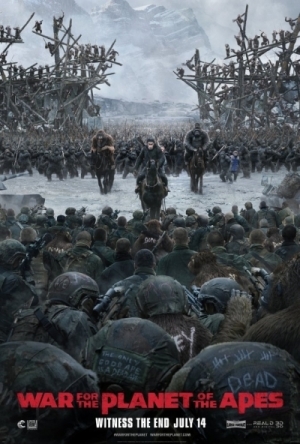Search
Matthew Krueger (10051 KP) rated Drag Me to Hell (2009) in Movies
Oct 28, 2020
Sam Raimi (1 more)
Alison Lohman
PG-13 (1 more)
Justin Long
Old Lady Curse
Drag me to Hell- is a anethor movie that ive wanted to see for couple years now and it was not disappointed. Its gory, horrorfying, terrorfying, scary, gory and overall a excellent movie.
The plot: Christine Brown (Alison Lohman) has a loving boyfriend (Justin Long) and a great job at a Los Angeles bank. But her heavenly life becomes hellish when, in an effort to impress her boss, she denies an old woman's request for an extension on her home loan. In retaliation, the crone places a curse on Christine, threatening her soul with eternal damnation. Christine seeks a psychic's help to break the curse, but the price to save her soul may be more than she can pay.
Raimi wrote Drag Me to Hell with his brother, Ivan, before working on the Spider-Man trilogy.
The original story for Drag Me to Hell was written ten years before the film went into production and was written by Sam Raimi and his brother Ivan Raimi. The film went into production under the name The Curse. The Raimis wrote the script as a morality tale, desiring to write a story about a character who wants to be a good person, but makes a sinful choice out of greed for her own betterment and pays the price for it. The Raimis tried to make the character of Christine the main focal point in the film, and tried to have Christine in almost all the scenes in the film.
The most significant parallel is that both stories involve the passing of a cursed object, which has to be passed to someone else, or its possessor will be devoured by one or more demons. Unlike his past horror films, Raimi wanted the film to be rated PG-13 and not strictly driven by gore, stating, "I didn't want to do exactly the same thing I had done before."
After finishing the script, Raimi desired to make the picture after the first draft of the script was completed, but other projects such as the Spider-Man film series became a nearly decade-long endeavor, pushing opportunities to continue work on Drag Me to Hell to late 2007. Raimi offered director Edgar Wright to direct Drag Me to Hell which Wright turned down as he was filming Hot Fuzz and felt that "If I did it, it would just feel like karaoke." After the previous three Spider-Man films, Raimi came back to the script of Drag Me to Hell, wanting to make a simpler and lower-budget film.
Raimi said he set out to create “a horror film with lots of wild moments and lots of suspense and big shocks that’ll hopefully make audiences jump. But I also wanted to have a lot of dark humor sprinkled throughout. I spent the last decade doing Spider-Man and you come to rely on a lot of people doing things for you and a lot of help, but it’s refreshing and wonderful to be reminded that, as with most filmmakers, the best way to do it is yourself, with a tight team doing the main jobs."
Its a excellent movie.
The plot: Christine Brown (Alison Lohman) has a loving boyfriend (Justin Long) and a great job at a Los Angeles bank. But her heavenly life becomes hellish when, in an effort to impress her boss, she denies an old woman's request for an extension on her home loan. In retaliation, the crone places a curse on Christine, threatening her soul with eternal damnation. Christine seeks a psychic's help to break the curse, but the price to save her soul may be more than she can pay.
Raimi wrote Drag Me to Hell with his brother, Ivan, before working on the Spider-Man trilogy.
The original story for Drag Me to Hell was written ten years before the film went into production and was written by Sam Raimi and his brother Ivan Raimi. The film went into production under the name The Curse. The Raimis wrote the script as a morality tale, desiring to write a story about a character who wants to be a good person, but makes a sinful choice out of greed for her own betterment and pays the price for it. The Raimis tried to make the character of Christine the main focal point in the film, and tried to have Christine in almost all the scenes in the film.
The most significant parallel is that both stories involve the passing of a cursed object, which has to be passed to someone else, or its possessor will be devoured by one or more demons. Unlike his past horror films, Raimi wanted the film to be rated PG-13 and not strictly driven by gore, stating, "I didn't want to do exactly the same thing I had done before."
After finishing the script, Raimi desired to make the picture after the first draft of the script was completed, but other projects such as the Spider-Man film series became a nearly decade-long endeavor, pushing opportunities to continue work on Drag Me to Hell to late 2007. Raimi offered director Edgar Wright to direct Drag Me to Hell which Wright turned down as he was filming Hot Fuzz and felt that "If I did it, it would just feel like karaoke." After the previous three Spider-Man films, Raimi came back to the script of Drag Me to Hell, wanting to make a simpler and lower-budget film.
Raimi said he set out to create “a horror film with lots of wild moments and lots of suspense and big shocks that’ll hopefully make audiences jump. But I also wanted to have a lot of dark humor sprinkled throughout. I spent the last decade doing Spider-Man and you come to rely on a lot of people doing things for you and a lot of help, but it’s refreshing and wonderful to be reminded that, as with most filmmakers, the best way to do it is yourself, with a tight team doing the main jobs."
Its a excellent movie.
Acanthea Grimscythe (300 KP) rated The Grip of It in Books
May 12, 2018
Here we are about a week after I finished reading The Grip of It by Jac Jemc, and I’m still not quite sure how I feel about it. I expected something a bit more horrifying and, though it certainly has a sense of urgency to it, it lacked the final answers that I enjoy so much in a haunted house novel.
The characters of The Grip of It are millennials, and apparently, we do not worry about our jobs. What I mean by this is that Julie and James, our main characters, are stereotypes to a fault and this bothers me. It bothers me because their behavior, in response to their house’s issues, does not reflect proportionately upon my generation. James more or less walks out of his job and doesn’t bother getting another one, whilst Julie shows up at her workplace inappropriately. I suppose this isn’t something that should bother me so much and might have slipped past my radar entirely if it weren’t for the blurb on the back cover of the book. If you’ve been following my blog for any length of time, you’ll know I abhor stereotypes. Especially those that do not truly represent a group of people. /rant over
The story itself isn’t horrible, but it’s not really anything new either. Most of it is driven by the style of writing. For instance, you can clearly feel the differences in Julie and James’s personalities. Julie’s point-of-view contains lots of run-on sentences and has a high-anxiety feel to it–which is the opposite of many of her actions, oddly enough. James, on the other hand, has a lackadaisical feel. As for the haunting? Little is truly revealed as to its origins and very few questions are asked, leaving this book to focus primarily on the characters and how events affect them, rather than the reality of what’s going on. In fact, one might argue that the couple is simply going mad.
I was so excited to get my hands on this books, and just as disappointed and underwhelmed when I finished reading it. I devoured each page waiting eagerly for something to really happen, but in the end I’m left with unanswered questions. This isn’t always a bad thing, but when you’re questioning the book as a whole… well that says something.
The characters of The Grip of It are millennials, and apparently, we do not worry about our jobs. What I mean by this is that Julie and James, our main characters, are stereotypes to a fault and this bothers me. It bothers me because their behavior, in response to their house’s issues, does not reflect proportionately upon my generation. James more or less walks out of his job and doesn’t bother getting another one, whilst Julie shows up at her workplace inappropriately. I suppose this isn’t something that should bother me so much and might have slipped past my radar entirely if it weren’t for the blurb on the back cover of the book. If you’ve been following my blog for any length of time, you’ll know I abhor stereotypes. Especially those that do not truly represent a group of people. /rant over
The story itself isn’t horrible, but it’s not really anything new either. Most of it is driven by the style of writing. For instance, you can clearly feel the differences in Julie and James’s personalities. Julie’s point-of-view contains lots of run-on sentences and has a high-anxiety feel to it–which is the opposite of many of her actions, oddly enough. James, on the other hand, has a lackadaisical feel. As for the haunting? Little is truly revealed as to its origins and very few questions are asked, leaving this book to focus primarily on the characters and how events affect them, rather than the reality of what’s going on. In fact, one might argue that the couple is simply going mad.
I was so excited to get my hands on this books, and just as disappointed and underwhelmed when I finished reading it. I devoured each page waiting eagerly for something to really happen, but in the end I’m left with unanswered questions. This isn’t always a bad thing, but when you’re questioning the book as a whole… well that says something.
Rachel King (13 KP) rated Lion's Honey: The Myth of Samson in Books
Feb 11, 2019
I was a little surprised as to what comprised this book, as I expected to find a fictional retelling after the reproduction of Judges 13-16 of the King James Bible. Instead, what follows is a detailed commentary that examines and dissects the Biblical account, using even the original language to understand the full meaning of the text, with all of its nuances and allusions. As many times that I have studied the story of Samson in church growing up, there is apparently quite a bit that I never knew about such an interesting character in Hebrew history.
As any person chosen of God to do His will, Samson is a man plagued by his destiny and how it separates him from the rest of humanity. Though chosen of God from the womb to live as a Nazarite, he is still very much human with human urges. Almost constantly at war with himself, Samson seems to set himself up to be hurt by those he puts his trust in so that he may let loose his anger and rage against those who hold his people captive -- the Philistines. Like so many modern-day psychological head cases, much of his choices are also driven by a need for that hidden something lacking in his relationship with his parents. He looks for it in the wrong places and the wrong women, even paying a visit to a prostitute. He seems to use his strength and anger with an artistic flair, first setting up a group of Philistines at his wedding with an unsolvable riddle, and later finding rather unique ways of further punishing the Philistines, such as using the jawbone of an ass to kill a thousand of them. Furthermore, every verbal account from Samson is spoken poetically.
What I found most interesting is the way that David Grossman explored the account of Samson and Delilah. He alludes that Samson in fact knew the betrayal that Delilah harbored and welcomed it in order to finally shed his God-given destiny. While he ends his life in a final act of redemption, I have to wonder if he did complete the task that God had given him to "begin to deliver Israel out of the hand of the Philistines."
Despite the intense detail that David Grossman goes into when writing this study of Samson, the book is a very good read and well worth my time.
As any person chosen of God to do His will, Samson is a man plagued by his destiny and how it separates him from the rest of humanity. Though chosen of God from the womb to live as a Nazarite, he is still very much human with human urges. Almost constantly at war with himself, Samson seems to set himself up to be hurt by those he puts his trust in so that he may let loose his anger and rage against those who hold his people captive -- the Philistines. Like so many modern-day psychological head cases, much of his choices are also driven by a need for that hidden something lacking in his relationship with his parents. He looks for it in the wrong places and the wrong women, even paying a visit to a prostitute. He seems to use his strength and anger with an artistic flair, first setting up a group of Philistines at his wedding with an unsolvable riddle, and later finding rather unique ways of further punishing the Philistines, such as using the jawbone of an ass to kill a thousand of them. Furthermore, every verbal account from Samson is spoken poetically.
What I found most interesting is the way that David Grossman explored the account of Samson and Delilah. He alludes that Samson in fact knew the betrayal that Delilah harbored and welcomed it in order to finally shed his God-given destiny. While he ends his life in a final act of redemption, I have to wonder if he did complete the task that God had given him to "begin to deliver Israel out of the hand of the Philistines."
Despite the intense detail that David Grossman goes into when writing this study of Samson, the book is a very good read and well worth my time.
graveyardgremlin (7194 KP) rated Night Play (Dark-Hunter #5, Were-Hunter #1) in Books
Feb 15, 2019
<i>Night Play</i> is one of my favorites in this series so far - it's right up there with <i>Fantasy Lover</i> and <i>Dance with the Devil</i>, although I think DwtD might come out ahead. I love, love, loved it! It was one of those books that just got better. The plot was slightly different than the previous books in the series and focused more on the love story. Bride was a wonderful, size eighteen human heroine, who knows (or knew anyway) nothing about what goes bump in the night, while Vane is a to-die-for hunky hero. Need I say more? Everyone would love a guy like him - I know I would! This was one of those books that a few times at the end I had that big, goofy, dumb smile on my face, and don't pretend I'm the only one! ;P
Valerius makes another appearance as a slightly more likable character and he looks to be a very interesting and intriguing hero in his installment. Actually, a lot of the characters who make appearances sound like they'd be great heroes/heroines. Too bad Sherrilyn can't turn them out faster and most likely won't have time for all of them! :P
This was a nice review:
From Booklist
Bride McTierney has just been dumped via FedEx. There's not much that could ease such a broken heart until Vane Kattalakis wanders into her shop and her life. Their whirlwind affair feels too good to be true. After all, her ex-beau proved men are dogs, which turns out to be a more appropriate figure of speech than Bride could ever imagine. More character driven than her previous Dark-Hunter novels, Kenyon's latest is a nice change of pace yet still chock-full of the quirky humor, complex fantasy, and searing passion that her readers love. This book's success, however, appropriately lies with Bride and Vane. It's been said of Kenyon that she knows men, but she really knows women and all our secret fears and hidden desires. She has distilled those into Bride, who is both our sister and ourselves. Then she made a man who understands and loves her, insecurities and all. Every woman should have a Vane Kattalakis in her life. Thanks to Kenyon, every woman can.
Valerius makes another appearance as a slightly more likable character and he looks to be a very interesting and intriguing hero in his installment. Actually, a lot of the characters who make appearances sound like they'd be great heroes/heroines. Too bad Sherrilyn can't turn them out faster and most likely won't have time for all of them! :P
This was a nice review:
From Booklist
Bride McTierney has just been dumped via FedEx. There's not much that could ease such a broken heart until Vane Kattalakis wanders into her shop and her life. Their whirlwind affair feels too good to be true. After all, her ex-beau proved men are dogs, which turns out to be a more appropriate figure of speech than Bride could ever imagine. More character driven than her previous Dark-Hunter novels, Kenyon's latest is a nice change of pace yet still chock-full of the quirky humor, complex fantasy, and searing passion that her readers love. This book's success, however, appropriately lies with Bride and Vane. It's been said of Kenyon that she knows men, but she really knows women and all our secret fears and hidden desires. She has distilled those into Bride, who is both our sister and ourselves. Then she made a man who understands and loves her, insecurities and all. Every woman should have a Vane Kattalakis in her life. Thanks to Kenyon, every woman can.
Mayhawke (97 KP) rated Her Every Fear in Books
Feb 13, 2018
Workaday Thriller
For the record I should say that I listened to the book rather than reading a hard copy, and the reading of the book I was listening to was not the most inspiring. The reader (Juliette Burton) was what I think of as a 'flat' reader - aside from the odd accent adopted to distinguish characters there was little variation in tone and pace through the reading. This is not a style that works for me as I find it detracts from those moments where a writer has obviously written for atmosphere or tension. This is particularly the case where the book in question is a thriller - after all, it's supposed to thrill, not pass by with all the excitement, intrigue and suspense of a banking ad.
In the book's favour I found the main character believable and sympathetic. Her actions and choices, as a trauma survivor, I found more realistic than the standard we are usually given, where a character is given all the most extreme behaviours and responses ,and few if any of the more moderate ones - or if they are they never act upon them. She is likable and logical, even when she knows that her own actions are illogical and driven by fear. Sometimes she submits to the fear, others she doesn't. She is not one-dimensional. The premise for the character that 'she has always been overly-nervous' seems a little superfluous - she has a history that gives her cause enough to be nervous, and I don't think there is anything in her personality that needs justification beyond that.
That said this is not the most inspired of thrillers. There are no real surprises, no great twists or turns . It's a good, readable story( a holiday read, maybe) but it's never going to have you hanging on the edge of your seat, and the end could have been at least one chapter shorter, possibly more. The fact that this so and yet I still wanted to hear more is a testament to writing skill of Swanson and the general readability of the book.
To summarise: I will probably have forgotten I've read this in a month or so, but I wouldn't say it wasn't worth the read, and though demanding or deeply engrossing I enjoyed it while it lasted.
In the book's favour I found the main character believable and sympathetic. Her actions and choices, as a trauma survivor, I found more realistic than the standard we are usually given, where a character is given all the most extreme behaviours and responses ,and few if any of the more moderate ones - or if they are they never act upon them. She is likable and logical, even when she knows that her own actions are illogical and driven by fear. Sometimes she submits to the fear, others she doesn't. She is not one-dimensional. The premise for the character that 'she has always been overly-nervous' seems a little superfluous - she has a history that gives her cause enough to be nervous, and I don't think there is anything in her personality that needs justification beyond that.
That said this is not the most inspired of thrillers. There are no real surprises, no great twists or turns . It's a good, readable story( a holiday read, maybe) but it's never going to have you hanging on the edge of your seat, and the end could have been at least one chapter shorter, possibly more. The fact that this so and yet I still wanted to hear more is a testament to writing skill of Swanson and the general readability of the book.
To summarise: I will probably have forgotten I've read this in a month or so, but I wouldn't say it wasn't worth the read, and though demanding or deeply engrossing I enjoyed it while it lasted.
UP
Unprecedented Power: Jesse Jones, Capitalism and the Common Good
Book
As President Obama began to unveil sweeping government programs to restore the crippled economy, the...
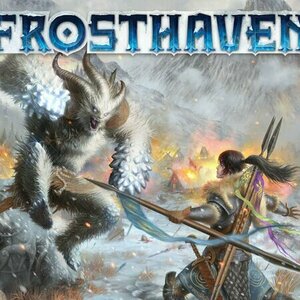
Frosthaven
Tabletop Game
Frosthaven is the story of a small outpost far to the north of the capital city of White Oak, an...

XCOM®: Enemy Within
Games
App
***NOTE: Compatible with iPad 3, iPad mini 2, iPhone 5 and up. WILL NOT be able to run on earlier...
Bob Mann (459 KP) rated I, Tonya (2017) in Movies
Sep 29, 2021
Some Darwin award winners.
Man, I personally found this one to be an exceedingly uncomfortable watch.
“I, Tonya” is cleverly filmed as a pseudo-documentary, featuring re-enactments of the real-life interviews of most of the participants in this true-life drama. I recently bitterly criticised some film critics for spoiling the story of Donald Crowhurst, the subject of the recent “The Mercy”. But I was about to do exactly the same here, *assuming* that you all know the lurid tale of the rivalry between Tonya Harding and Nancy Kerrigan that led up to an ‘event’ in 1994 that shocked the world. And of course, many of you younger folk don’t know: case in point my 26 year old son who I went to see this with, and who went into the story blissfully blind of the drama about to unfold. So I will try to keep this review spoiler-free.
Playing Tonya from a (not very credible!) 15 years old to her mid-20’s is Margot Robbie (“The Wolf of Wall Street”, “Suicide Squad”) in what is a BAFTA and Oscar nominated performance. And for good reason: the performance is raw, visceral and disturbing in reflecting a victim who still thinks everything at heart is her own fault.
Also BAFTA and Oscar nominated is Allison Janney (“The Girl on the Train”) as Tonya’s obnoxious chain-smoking mother LaVona. Janney is truly terrifying as the mother who abuses her daughter both physically and mentally in a driven attempt to make her the best ice-skater in the world.
Victims seem to attract abusers, and Tonya is surrounded by people who are just plain bad for her: notably her husband Jeff (Sebastian Stan, “The Martian”, “Captain America: Winter Soldier”) and his slimy and pitifully self-deluded friend Shawn (Paul Walter Hauser). The end credits video footage of the real-life players show just how well these parts were cast.
Why so uncomfortable to watch? There is a significant degree of domestic abuse featured in the film, both in terms of LaVona on her child and Jeff on his wife. This is something I abhor in general, having been brought up to believe it is never EVER acceptable to lay a hand on a woman. To have these cowardly individuals sensationalised in the movie I found to be really upsetting. I strongly feel, for this reason alone, that the film should have had an 18 certificate. Violence in film should be related to the context as well as the severity. (Note that this is in stark contrast to my comments of recent BBFC decisions to make “Phantom Thread” and “Lady Bird” 15-certificates when I believe they should have been 12A).
The film is executed extremely well, with 4:3 framing for the staged interviews, and ice skating scenes that seamlessly cut between the professional clearly doing the stunts and Robbie (who must also be a half decent skater too). The soundtrack is nicely littered – “Guardians of the Galaxy” style – with classic hits of the early 90’s.
To think that this story actually unfolded in this way is nothing short of astounding… but it did! There is an astonishing video clip here (#spoilers) of the run up to, and the immediate aftermath of, the Kerrigan incident. I came out of the film with a deep feeling of sadness for Harding (at least, as portrayed) and utter disgust that the villains of this piece could be a) so cruel and out of control and b) so utterly stupid. These are individuals who really should have been sterilised to stop them polluting the gene pool any further.
Written by Steven Rogers (“Stepmom”) and directed by Australian Craig Gillespie, there is no doubting that this is a powerful film: played to an absolutely silent and gripped Saturday night cinema audience. And it has truly dynamite performances from Allison Janney and Margot Robbie. But be warned that you’ll need a strong stomach to go and see it without being affected by it afterwards. It’s a mental keeper.
“I, Tonya” is cleverly filmed as a pseudo-documentary, featuring re-enactments of the real-life interviews of most of the participants in this true-life drama. I recently bitterly criticised some film critics for spoiling the story of Donald Crowhurst, the subject of the recent “The Mercy”. But I was about to do exactly the same here, *assuming* that you all know the lurid tale of the rivalry between Tonya Harding and Nancy Kerrigan that led up to an ‘event’ in 1994 that shocked the world. And of course, many of you younger folk don’t know: case in point my 26 year old son who I went to see this with, and who went into the story blissfully blind of the drama about to unfold. So I will try to keep this review spoiler-free.
Playing Tonya from a (not very credible!) 15 years old to her mid-20’s is Margot Robbie (“The Wolf of Wall Street”, “Suicide Squad”) in what is a BAFTA and Oscar nominated performance. And for good reason: the performance is raw, visceral and disturbing in reflecting a victim who still thinks everything at heart is her own fault.
Also BAFTA and Oscar nominated is Allison Janney (“The Girl on the Train”) as Tonya’s obnoxious chain-smoking mother LaVona. Janney is truly terrifying as the mother who abuses her daughter both physically and mentally in a driven attempt to make her the best ice-skater in the world.
Victims seem to attract abusers, and Tonya is surrounded by people who are just plain bad for her: notably her husband Jeff (Sebastian Stan, “The Martian”, “Captain America: Winter Soldier”) and his slimy and pitifully self-deluded friend Shawn (Paul Walter Hauser). The end credits video footage of the real-life players show just how well these parts were cast.
Why so uncomfortable to watch? There is a significant degree of domestic abuse featured in the film, both in terms of LaVona on her child and Jeff on his wife. This is something I abhor in general, having been brought up to believe it is never EVER acceptable to lay a hand on a woman. To have these cowardly individuals sensationalised in the movie I found to be really upsetting. I strongly feel, for this reason alone, that the film should have had an 18 certificate. Violence in film should be related to the context as well as the severity. (Note that this is in stark contrast to my comments of recent BBFC decisions to make “Phantom Thread” and “Lady Bird” 15-certificates when I believe they should have been 12A).
The film is executed extremely well, with 4:3 framing for the staged interviews, and ice skating scenes that seamlessly cut between the professional clearly doing the stunts and Robbie (who must also be a half decent skater too). The soundtrack is nicely littered – “Guardians of the Galaxy” style – with classic hits of the early 90’s.
To think that this story actually unfolded in this way is nothing short of astounding… but it did! There is an astonishing video clip here (#spoilers) of the run up to, and the immediate aftermath of, the Kerrigan incident. I came out of the film with a deep feeling of sadness for Harding (at least, as portrayed) and utter disgust that the villains of this piece could be a) so cruel and out of control and b) so utterly stupid. These are individuals who really should have been sterilised to stop them polluting the gene pool any further.
Written by Steven Rogers (“Stepmom”) and directed by Australian Craig Gillespie, there is no doubting that this is a powerful film: played to an absolutely silent and gripped Saturday night cinema audience. And it has truly dynamite performances from Allison Janney and Margot Robbie. But be warned that you’ll need a strong stomach to go and see it without being affected by it afterwards. It’s a mental keeper.
Andy Meakin (5 KP) rated War for the Planet of the Apes (2017) in Movies
Jan 8, 2018
Apes...together...strong!
The recent revival of the Apes franchise has managed to defy all expectations by not only being a worthy entry into the franchise, but also being strong films on their own merit. Working as a kind-of-prequel-reboot of the old franchise, and ignoring the Tim Burton film completely, it is strange to realise this is only the third film since the reboot. Lesser franchises would have churned out one every year or two, and be up to part five by now, but not the Apes films. It genuinely feels like they are taking time to ensure each film is worthy. Which is where another expectation is defied – the films don’t seem to diminish in quality, nor feel repetitive. Each entry so far has had its own feel and worked to move the story along. War for the Planet of the Apes is no exception, and is one of the finest blockbuster films of this year.
It has been 15 years since the events of the first film, and the release of the Simian Flu virus that wiped out a large percentage of humanity. The events of the second film saw the start of conflict between the apes and humans, instigated by Koba who defied Caesar’s leadership. Now, humanity are hunting down the apes, with one Colonel (Woody Harrelson) in particular striving to wipe them out entirely. When that Colonel attacks Caesar’s tribe, killing those close to him, it sets the ape leader off on a personal revenge journey, with only a few of his most loyal followers supporting him on the way. However, along the way they encounter two new recruits, an ape hermit who has also developed speech, and a young human girl who is showing signs of a new strain of the Simian virus.
It is a testament to the motion captured performances and the quality of the CGI on offer that at no point during the film do you not believe that the apes on screen are real. There’s a line in the film where Harrelson’s Colonel comments on how human looking Caesar’s eyes are, and whilst you could see that in the context of the film series’ arc (apes are becoming the new rulers, usurping humanity, and so are becoming more human), you can also see it as a nod to how the ‘uncanny valley’ dead-eye stare that plagues CGI in film is entirely absent here. Indeed, given that every scene in this relatively moderate $150million budget film is an effect shot, as apes are present throughout, it is jaw dropping that it looks a far more polished film than, for example, the $265million budgeted Rogue One – a film which tried desperately with two key CGI characters and failed so hard in the brief screen time they had. Over all the Apes series has impressed with the effects work, but here it is pretty much flawless.
But it isn’t all about the effects. In fact the action-packed film the trailers seemed to hint at is instead a thoughtful, character-driven revenge journey, with only short bursts of action. This is Caesar’s dark-journey of the soul, the end result of his attempts to live a peaceful co-existence with a humanity that fears him and his kind. Many comparisons can be drawn to films such as Apocalypse Now (something the film is aware of and manages to drop a reference to as a result), where a troubled individual, tired of war, seeks a crazed Colonel who is amassing his own army for an unknown purpose. The two core leads in their respective roles give their all. Serkis acting to a high degree, and giving genuine life to Caesar, and Harrelson gone completely Brando in his part, menacing without being overbearing.
The journey itself is a compelling story, and the support characters, some who we already know (Maurice, Luca and Rocket) acting as the conscience and the advisers to the troubled Caesar. The new additions, Amiah Miller’s war orphan who Maurice adopts on their journey, and Bad Ape (Steve Zahn) offer heart and comic relief respectively. The comic timing is perfectly placed, never feeling forced, and being deftly used to offer a glimmer of hope and joy in what is otherwise a very dark tale.
The film, overall, nicely rounds out the trilogy, whilst still leaving room for future films down the line. Matt Reeves’ direction makes effective use of his cast and settings, whilst the score by Michael Giacchino has grown more ‘ape-inspired’ since he scored the previous film, reflecting in its drums and pipes the more primate nature manner the world is taking as technology and humanity dwindles.
“Apes together strong!” is Caesar’s mantra. Indeed, all three Apes films, when viewed together, can be seen as one impressive, strong story, with a genuine progression throughout. A third film in a franchise usually derails and loses the way. Not here as this is one of the finest examples of intelligent blockbuster that you will find.
It has been 15 years since the events of the first film, and the release of the Simian Flu virus that wiped out a large percentage of humanity. The events of the second film saw the start of conflict between the apes and humans, instigated by Koba who defied Caesar’s leadership. Now, humanity are hunting down the apes, with one Colonel (Woody Harrelson) in particular striving to wipe them out entirely. When that Colonel attacks Caesar’s tribe, killing those close to him, it sets the ape leader off on a personal revenge journey, with only a few of his most loyal followers supporting him on the way. However, along the way they encounter two new recruits, an ape hermit who has also developed speech, and a young human girl who is showing signs of a new strain of the Simian virus.
It is a testament to the motion captured performances and the quality of the CGI on offer that at no point during the film do you not believe that the apes on screen are real. There’s a line in the film where Harrelson’s Colonel comments on how human looking Caesar’s eyes are, and whilst you could see that in the context of the film series’ arc (apes are becoming the new rulers, usurping humanity, and so are becoming more human), you can also see it as a nod to how the ‘uncanny valley’ dead-eye stare that plagues CGI in film is entirely absent here. Indeed, given that every scene in this relatively moderate $150million budget film is an effect shot, as apes are present throughout, it is jaw dropping that it looks a far more polished film than, for example, the $265million budgeted Rogue One – a film which tried desperately with two key CGI characters and failed so hard in the brief screen time they had. Over all the Apes series has impressed with the effects work, but here it is pretty much flawless.
But it isn’t all about the effects. In fact the action-packed film the trailers seemed to hint at is instead a thoughtful, character-driven revenge journey, with only short bursts of action. This is Caesar’s dark-journey of the soul, the end result of his attempts to live a peaceful co-existence with a humanity that fears him and his kind. Many comparisons can be drawn to films such as Apocalypse Now (something the film is aware of and manages to drop a reference to as a result), where a troubled individual, tired of war, seeks a crazed Colonel who is amassing his own army for an unknown purpose. The two core leads in their respective roles give their all. Serkis acting to a high degree, and giving genuine life to Caesar, and Harrelson gone completely Brando in his part, menacing without being overbearing.
The journey itself is a compelling story, and the support characters, some who we already know (Maurice, Luca and Rocket) acting as the conscience and the advisers to the troubled Caesar. The new additions, Amiah Miller’s war orphan who Maurice adopts on their journey, and Bad Ape (Steve Zahn) offer heart and comic relief respectively. The comic timing is perfectly placed, never feeling forced, and being deftly used to offer a glimmer of hope and joy in what is otherwise a very dark tale.
The film, overall, nicely rounds out the trilogy, whilst still leaving room for future films down the line. Matt Reeves’ direction makes effective use of his cast and settings, whilst the score by Michael Giacchino has grown more ‘ape-inspired’ since he scored the previous film, reflecting in its drums and pipes the more primate nature manner the world is taking as technology and humanity dwindles.
“Apes together strong!” is Caesar’s mantra. Indeed, all three Apes films, when viewed together, can be seen as one impressive, strong story, with a genuine progression throughout. A third film in a franchise usually derails and loses the way. Not here as this is one of the finest examples of intelligent blockbuster that you will find.
